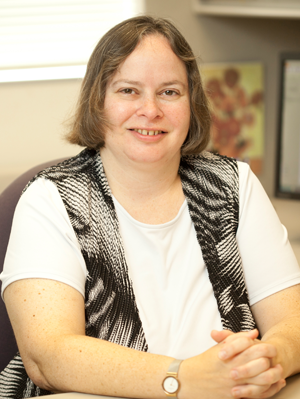Research at the intersection of behavior and health outcomes
 Sheryl Catz
Sheryl Catz
When the end of a loved one’s life approaches, family, friends and caregivers face a barrage of emotions and checklists. Most people go through a period of chronic illness before they die. Along the way there are numerous choices to make ― from pain management and caregiver roles to legal paperwork and spiritual needs.
What drives people toward healthy behavior lies at the heart of Sheryl Catz’s body of work. A doctorally prepared clinical psychologist with a specialty in behavioral medicine, this professor at the Betty Irene Moore School of Nursing at UC Davis has amassed a wealth of information on the scientific study of behaviors relating to a person’s health and well-being and the ability to thrive in the face of life-threatening and chronic health conditions.
Today, her research examines technology’s role in developing innovative ways to support people in taking good care of themselves and Catz’s teaching enables doctoral students to objectively evaluate dissertation topics that deserve their time and talent.
“Behavior is the common link, both what gets a person to do certain things and what keeps him or her consistently doing those things over time,” Catz explained. “Technology companies develop mobile health apps all the time, but without the evidence-based science we expect in health care. My current research interests are in designing tools that patients and their providers may want to use together, examining who the tools are effective for, and which parts of these apps people will want to stay actively engaged with for long enough to make a difference in their health behaviors and outcomes.”
To illustrate how research ideas can evolve over time, Catz likes to tell her students about how she started out studying humor and ending up as an AIDS researcher. For her master’s thesis at the College of William and Mary, Catz studied the different ways people cope with stress and daily hassles, and whether or not coping mechanisms like humor could change health and psychosocial health outcomes. Her interest in stress led her to pursue a doctoral degree at Louisiana State University, where her focus narrowed to the role stress plays in the lives of those living with HIV and AIDS.
“While working with a team of LSU students at a safety-net hospital collecting information from medical records and surveying patients during visits to an HIV clinic to determine the role of stress in immune function for those with HIV, I first became interested in studying treatment adherence. When data that should have existed was missing, we realized that people living with HIV were skipping their appointments and labs at alarming rates,” Catz recalled. “So, I conducted my dissertation study to examine barriers to people attending HIV care appointments. The year after I started this research, highly affective antiretroviral therapy drugs arrived on the market and brought real promise to treat the disease. Soon, the issue of adhering to treatment became important to everyone studying HIV disease.”
As people began living longer with HIV due to new treatments, HIV quickly started to become more like a chronic disease than a death sentence. Questions remained for Catz, including: “What are the psychosocial effects of living with HIV? How can we sustain medication adherence? How can we improve quality of life?”
Armed with these questions and the passion to find answers, Catz assumed an assistant professorship at the Center for AIDS Intervention Research at the Medical College of Wisconsin and honed her research skills. Her work there caught the attention of the Group Health Research Institute (GHRI) in Seattle, the home of the Chronic Care Model, where she eventually worked as a researcher for 11 years.
“At GHRI I saw the benefits of a multidisciplinary approach to care and research,” Catz said. “Scientists examined a whole range of diseases and different chronic-disease populations. There evolved some synergy in how to leverage technology to help people manage their conditions.”
For example, Catz and her team learned how to use secure messaging between patients and pharmacists through a web-based, electronic health record to help those with hypertension manage their condition. Catz then used a similar approach to enable nurses to send secure messages to people living with HIV to help them trouble shoot barriers to sticking to their medication regimens.
Having received many NIH-supported grants throughout her career, Catz’s work came full circle, once again, focusing on how individual behavior prompts personal decisions that impact health outcomes. UC Davis’ reputation of innovative research and the School of Nursing’s cornerstone of interprofessional and interdisciplinary principles lured Catz to continue her research in Sacramento. Current studies underway maintain a commonality of chronic disease and technology.
From helping to develop a mobile app to support smoking cessation treatment adherence to collaborating on Transatlantic Telehealth Research Network initiatives exploring new patient-centered ways of remotely monitoring and improving heart failure self-management, Catz hopes to determine what technologies resonate with people and could both promote sustainable behavior change and productive information exchange with their providers.
“Wearable technology and self-monitoring apps are hot right now. If it’s all focused on consumers, rather than providers, it cannot realize its full potential,” Catz explained. “We must determine what functions encourage healthy behaviors and which data is useful for both people and providers, then design tools with interfaces acceptable for both that improve health and quality of life.”





